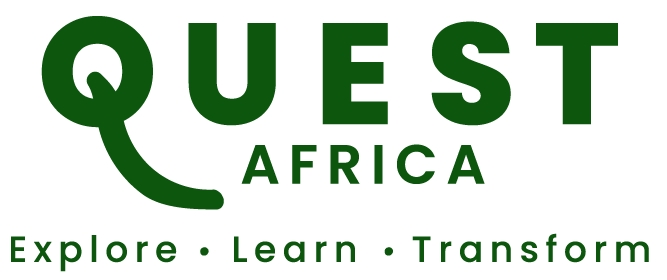-
- Introduction
At Quest Africa, diversity, equity, and inclusion (DEI) are at the heart of our mission to create transformative travel experiences that celebrate Africa’s rich cultures and foster meaningful connections across the globe. We are committed to cultivating a safe, inclusive, and equitable environment where everyone—participants, staff, and community partners—feels valued, respected, and empowered.
This policy outlines our commitment to embedding DEI principles into every aspect of our operations, from program design to staff recruitment, and from community engagement to participant support.
- Policy Statement
Quest Africa is dedicated to:
- Diversity: Embracing the unique identities, backgrounds, and perspectives of all participants, staff, and partners.
- Equity: Ensuring fair access to opportunities, resources, and support for everyone involved.
- Inclusion: Creating an environment where all individuals feel a sense of belonging and are empowered to contribute meaningfully.
- Scope
This policy applies to:
- Participants: Participants in Quest Africa programs.
- Staff: Full-time, part-time, and contracted employees.
- Community Partners: Local guides, service providers, and host communities.
- Stakeholders: Sponsors, alumni, and external collaborators.
- Key Commitments
4.1 Fostering an Inclusive Environment
- Respect for All: Ensure that all individuals are treated with dignity and respect, regardless of race, ethnicity, gender, sexual orientation, religion, age, disability, or socioeconomic status.
- Cultural Sensitivity: Provide training to participants and staff to promote cultural awareness and eliminate unconscious biases.
- Accessible Communication: Use inclusive language in all communications and provide multilingual support where possible.
4.2 Promoting Equity
- Fair Recruitment Practices: Use transparent, equitable hiring processes that prioritize diversity in leadership and staff roles.
- Financial Accessibility: Offer scholarships, financial aid, and sliding scale fees to support participants from underrepresented and underserved communities.
- Equitable Resource Allocation: Ensure community partners and local collaborators receive fair compensation and equitable access to program benefits.
4.3 Celebrating Diversity
- Program Design: Develop experiences that showcase the diverse histories, cultures, and traditions of Africa while respecting local norms and values.
- Representation: Ensure diverse representation in marketing materials, program content, and leadership.
- Community Engagement: Co-create programs with local communities to highlight and honor their unique perspectives and contributions.
4.4 Addressing Discrimination and Harassment
- Zero Tolerance Policy: Prohibit all forms of discrimination, harassment, and bullying within Quest Africa programs and activities.
- Clear Reporting Mechanisms: Provide accessible, confidential channels for reporting incidents, supported by prompt and impartial investigations.
- Support for Victims: Offer counseling, mediation, and appropriate remedies to individuals affected by discrimination or harassment.
- Implementation Strategies
5.1 Training and Education
- DEI Training for Staff: Provide regular training on cultural competence, unconscious bias, and inclusive leadership.
- Participant Orientation: Include DEI education in pre-departure and on-site orientations to prepare participants for respectful cross-cultural interactions.
- Community Workshops: Facilitate workshops on diversity and inclusion for local partners and collaborators.
5.2 Inclusive Program Practices
- Accommodation of Needs: Provide reasonable accommodations for individuals with disabilities, dietary restrictions, or other specific needs.
- Language Support: Offer translation services and multilingual resources for non-English-speaking participants.
- Adaptive Learning: Tailor program content and activities to accommodate diverse learning styles and preferences.
5.3 Collaboration with Stakeholders
- Local Partnerships: Work with grassroots organizations and community leaders to ensure programs align with local values and priorities.
- Feedback Mechanisms: Regularly gather input from participants, staff, and community partners to identify areas for improvement.
- Alumni Engagement: Leverage alumni networks to mentor new participants and advocate for diversity in Quest Africa’s initiatives.
- Monitoring and Accountability
6.1 Metrics for Success
- Diversity Metrics: Track participant demographics, staff composition, and community representation to ensure inclusivity goals are met.
- Equity Audits: Conduct periodic audits to identify and address disparities in access to resources or opportunities.
- Inclusion Surveys: Measure participant and staff satisfaction regarding their sense of belonging and empowerment.
6.2 Reporting and Transparency
- Annual DEI Report: Publish a comprehensive report detailing progress, challenges, and future goals related to DEI initiatives.
- Incident Tracking: Maintain a record of discrimination or harassment incidents and their resolutions.
6.3 Continuous Improvement
- Regular Reviews: Update this policy annually to reflect evolving best practices and stakeholder feedback.
- Partnership Development: Collaborate with global DEI organizations to enhance training, resources, and strategies.
- Compliance and Alignment
Quest Africa aligns its DEI practices with global frameworks and standards, including:
- United Nations Sustainable Development Goals (SDGs): Emphasizing goals related to reduced inequalities, gender equality, and quality education.
- UNESCO Framework for Cultural Diversity: Promoting cultural exchange and mutual understanding.
- International Labour Organization (ILO) Standards: Ensuring equitable treatment and opportunities in the workplace.
- Reporting and Grievance Procedures
8.1 Reporting Discrimination or Harassment
- Confidential Channels: Provide participants and staff with confidential reporting options via email, phone, or in-person.
- Immediate Response: Commit to addressing all reports within 48 hours with transparency and sensitivity.
- Non-Retaliation Policy: Protect individuals who report incidents from retaliation or negative consequences.
8.2 Investigation Process
- Neutral Investigators: Assign impartial investigators to handle complaints.
- Timely Resolution: Ensure investigations are completed within a defined timeframe, with outcomes communicated transparently.
- Remedial Actions: Implement appropriate corrective measures, including counseling, mediation, or disciplinary actions.
At Quest Africa, diversity, equity, and inclusion are not just values—they are essential to our mission of creating transformative travel experiences. By fostering an environment of respect, empathy, and collaboration, we empower participants and communities to thrive together. This policy is a living document, evolving as we learn, grow, and deepen our commitment to DEI principles.

